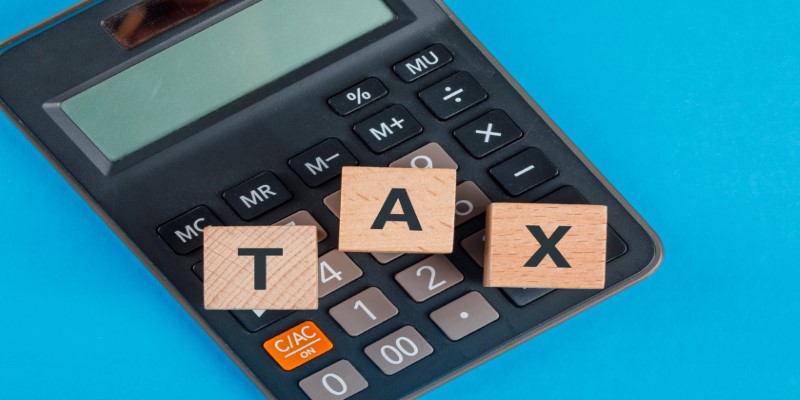Tax Rules for U.S. Territories: What IRS Publication 570 Means for You
Dec 11, 2024 By Georgia Vincent
If you earn income from a U.S. possession, you may have questions about how your earnings impact your federal taxes. Enter IRS Publication 570a crucial resource that clarifies how to handle taxes on income generated from U.S. territories.

This guide will provide rules, exclusions, and special considerations for tax-filing purposes for income earners from places like Puerto Rico, Guam, the U.S. Virgin Islands, American Samoa, and the Northern Mariana Islands. Using this simple approach, we will walk you through the important things you should know about Publication 570 and guide you in managing your U.S. possession income taxes.
Understanding U.S. Possessions and Tax Implications
U.S. possessions, often referred to as U.S. territories, differ in treatment of taxation as they enjoy an exclusive relationship with the United States. The possessions include Puerto Rico, Guam, the U.S. Virgin Islands, American Samoa, and the Northern Mariana Islands, which remain under the U.S. but have their tax codes other than that of the latter, hence granting some form of tax sovereignty and affecting the tax liability of the residents or non-residents who stay or have assets on such locations.
Publication 570 explains who is eligible for some special tax treatments and how some people must report their income. Those residents of U.S. territories and others whose income, such as this, is sourced from the territories may find instructions on how to calculate it and file and possibly exclude some or all of the income. Whether you live full-time in the United States and work from a remote location for a company based in U.S. possession or whether you reside within one of these territories, knowledge of the tax rules of Publication 570 will prove to be most essential to avoiding expected tax bills or penalties.
Key Income Exclusions and Deductions for U.S. Possession Income
IRS Publication 570 details income exclusions based on residency and income sources, allowing qualified individuals to exclude U.S. possession earnings from federal tax returns.
Puerto Rico

If youre a bona fide resident of Puerto Rico, you can generally exclude Puerto Rican-sourced income from your U.S. federal tax return. However, if youre a U.S. citizen or resident alien with income from sources outside Puerto Rico, you may need to file a U.S. return and report that income. Taxpayers also need to be aware of the criteria for bona fide residency, which include physical presence, tax home, and closer connection tests.
Guam and the Northern Mariana Islands
The tax situation for bona fide residents of Guam and the Northern Mariana Islands mirrors that of Puerto Rico. Income sourced within these territories may be excluded from U.S. federal income taxes, provided residency requirements are met. Publication 570 offers detailed explanations of these requirements, including which types of income qualify and the necessary residency tests.
American Samoa and the U.S. Virgin Islands
Certain tax exclusions also apply to residents of American Samoa and the U.S. Virgin Islands. American Samoa has a unique tax structure, allowing its residents to claim a full exclusion on Samoan-sourced income. For the U.S. Virgin Islands, qualifying residents can exclude income sourced from the Virgin Islands. However, they may still need to report certain types of income to both the IRS and the Virgin Islands Bureau of Internal Revenue.
Residency Requirements and the Bona Fide Residency Test
A critical aspect of qualifying for income exclusions is passing the bona fide residency test. Publication 570 details the criteria for determining bona fide residency, which is necessary to benefit from tax exclusions in these territories. This residency test has three components:
Physical Presence Test: To qualify, you generally need to be physically present in the territory for at least 183 days during the tax year.
Tax Home Test: Your tax home should be in the territory for the entire year.
Closer Connection Test: For the tax year, you must demonstrate a closer connection to the U.S. possession than to the mainland U.S.
For those with dual residency or income sources that cross borders, navigating the bona fide residency test can be complex. Publication 570 breaks down the criteria and offers examples of scenarios that might apply, helping taxpayers understand if they qualify for exclusions or if they need to file with the IRS.
Filing and Reporting Requirements for U.S. Possession Income
Publication 570 includes detailed instructions on how to file for those with income from U.S. possessions. Heres a look at some of the main considerations:
Dual Filing
In some cases, taxpayers may need to file both a U.S. tax return and a return in the territory where the income was earned. This requirement generally applies to those who are not bona fide residents of the territory or who have income from multiple sources. For example, a mainland U.S. citizen who works in Guam but does not meet the residency test might need to file both in Guam and with the IRS, with possible credits to avoid double taxation.
Self-Employment Tax

Publication 570 also clarifies rules about self-employment tax in U.S. territories for self-employed individuals. In general, self-employed individuals must pay Social Security and Medicare taxes on their earnings, regardless of where they live or work. However, some territories have agreements with the U.S. that affect these contributions, and Publication 570 helps taxpayers understand which rules apply to their unique situations.
Foreign Earned Income Exclusion vs. U.S. Possession Income Exclusion
Some individuals may be eligible for both the Foreign Earned Income Exclusion and the U.S. Possession Income Exclusion. However, they must choose one, as they cannot claim both for the same income. Publication 570 offers guidance on choosing the most beneficial exclusion and calculating which option will provide the best tax advantage.
Conclusion
IRS Publication 570 serves as an invaluable resource for individuals with income from U.S. possessions, helping clarify the often-confusing landscape of tax rules and exclusions. Whether you live in Puerto Rico, Guam, or another U.S. territory, understanding the requirements outlined in Publication 570 can help you make informed decisions, meet your tax obligations, and potentially reduce your tax liability. From residency tests to specific credits, this publication is essential reading for those navigating the unique tax landscape of U.S. possessions. With careful planning and the right guidance, you can confidently manage your taxes and ensure compliance with both U.S. and local regulations.








